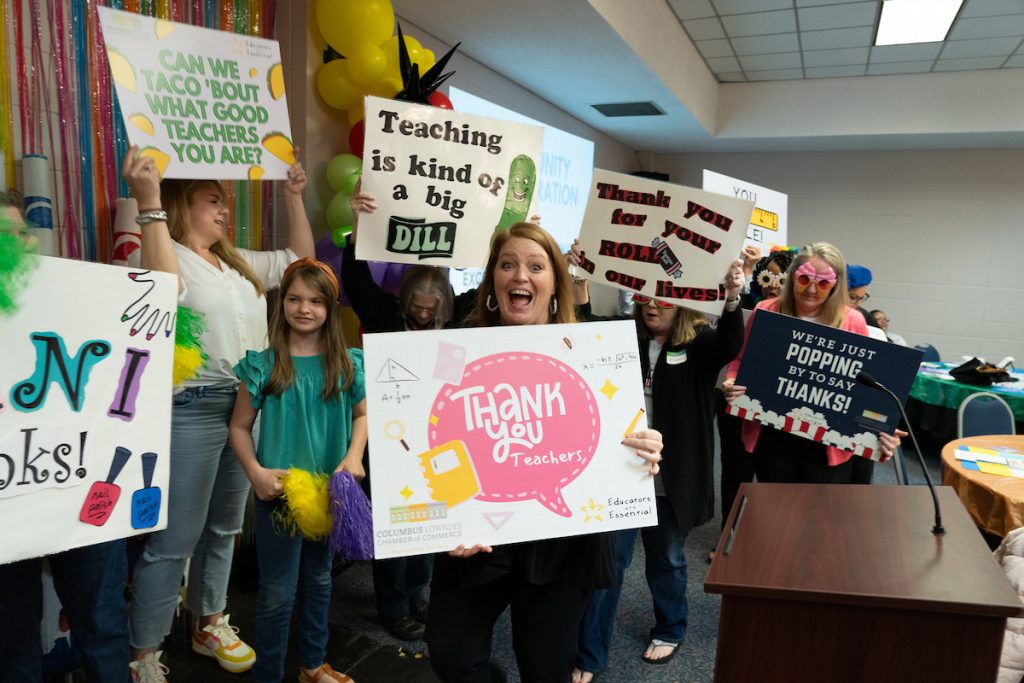
Teach and Inspire
Mississippi’s Next Generation
Elementary Education (K–6)
The Elementary Education program at The W prepares future teachers to lead classrooms in grades K–6. With a strong focus on literacy, math, science, and social studies, candidates build the knowledge and practical skills to meet the needs of diverse learners.
The program is structured in four Blocks, each combining coursework with field-based Residencies. This step-by-step design allows students to connect theory to practice in real classrooms every semester, culminating in a full-time internship as a teacher-in-training.
The demand for well-prepared elementary teachers remains steady across Mississippi and the nation. A K–6 license provides long-term career stability with state benefits and retirement, aligning graduates with the professional foundation shared by all licensed educators.
Courses are offered online or in person, with classroom-based practical experiences arranged in your own community. Our students are located across the region—and even around the world—and we work with schools where you live to create meaningful residency and internship opportunities. We know that grassroots, homegrown teachers are often the most effective, and our goal is to help you stay and serve in the places you are needed most.
Why Choose This Program?
- Comprehensive preparation across core subjects: literacy, math, science, and social studies.
- Step-sequenced Blocks with integrated coursework and residencies.
- Hands-on classroom experiences that progress each semester.
- Faculty mentorship and personalized support for education students.
- Licensure recommendation for K–6 teaching in Mississippi.
Course Highlights
- Education as a Profession
- Early Literacy Instruction I & II
- Integrating Reading & Writing Across the Curriculum
- Teaching Science, Mathematics, and Social Studies in Elementary & Middle School
- Classroom Management & Student Interventions
- Diagnosing and Assessing Reading Difficulties
- Residency I–III: Gradual, hands-on classroom experience
- Teacher Internship: Full-time, semester-long classroom placement
Career Outcomes
Graduates are well-prepared for steady and meaningful careers, including:
- Classroom Teaching: Licensed K–6 teacher in public schools with full state benefits and retirement. A K–6 license offers career steadiness, with strong demand for elementary educators statewide and nationwide.
- Private & Independent Schools: Teacher roles in elementary settings beyond the public system.
- Specialized Roles: Opportunities to add endorsements in Reading, Special Education, or subject areas for career advancement.
- Pathways Upward: Preparation for graduate study, school leadership, curriculum development, or advocacy in education.
Mississippi Teacher Residency (MTR) at The W
The Mississippi Teacher Residency (MTR) at Mississippi University for Women funds and supports a cohort of Elementary Education (K–6) majors during their Internship semester (Spring 2026) and provides a pathway to add the Special Education Mild/Moderate (221) endorsement. Residents receive comprehensive academic, licensure, and mentoring support to become day-one-ready teachers who serve in Mississippi’s highest-need schools.
The W Difference
Our Block-and-Residency model ensures students don’t just learn about teaching—they practice it continuously. By the time they enter their internship semester, candidates have already built confidence and skill in real classrooms, making them classroom-ready on day one. With flexible course delivery and community-based placements, The W equips graduates to serve where they are needed most.
Contact Us
Have questions about admissions or licensure? Connect with our program navigator, Christi Dillon, at cmdillon@muw.edu or 662-329-7190 for step-by-step guidance.
Download Elementary Education Plan of Study:
